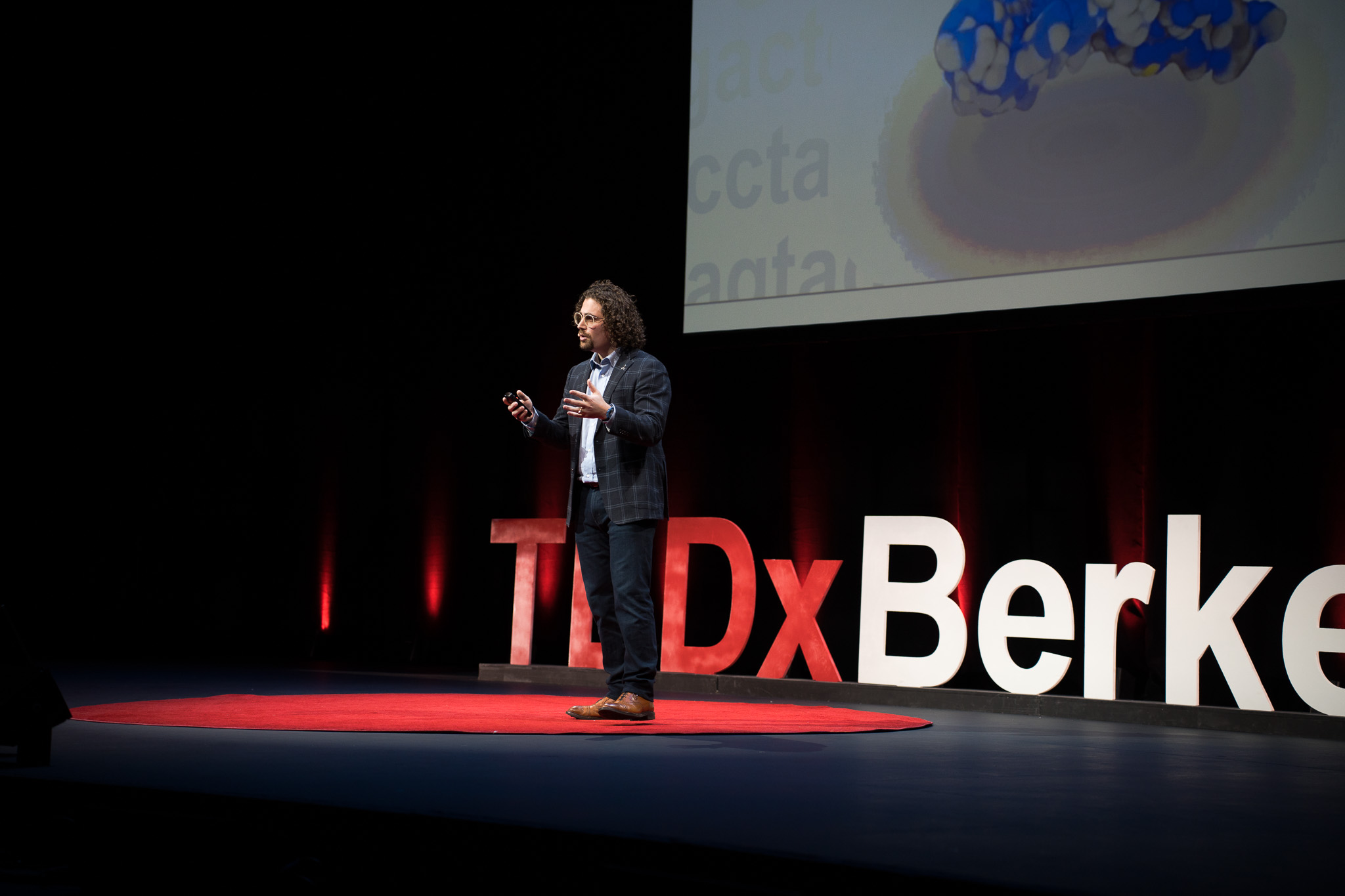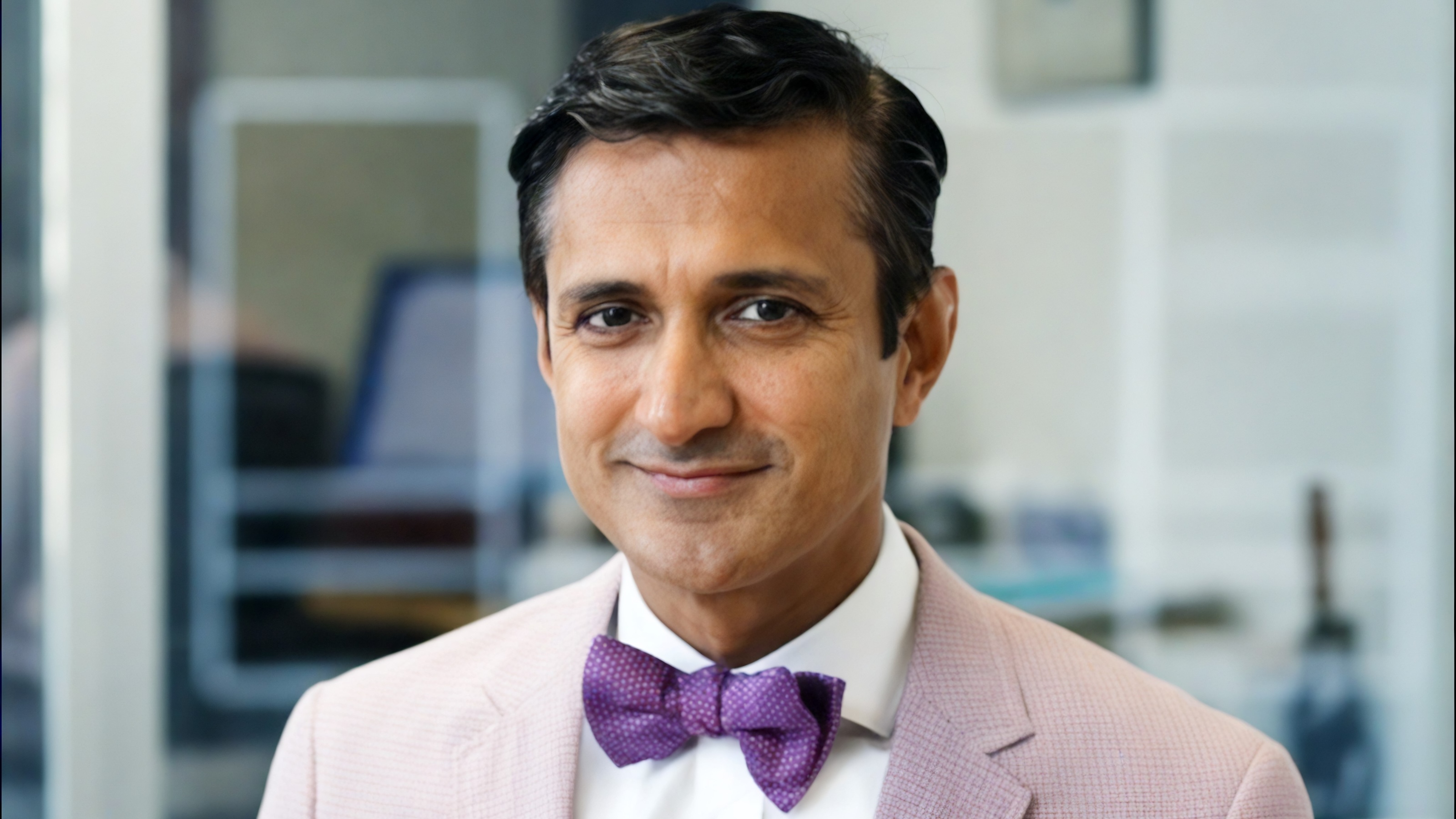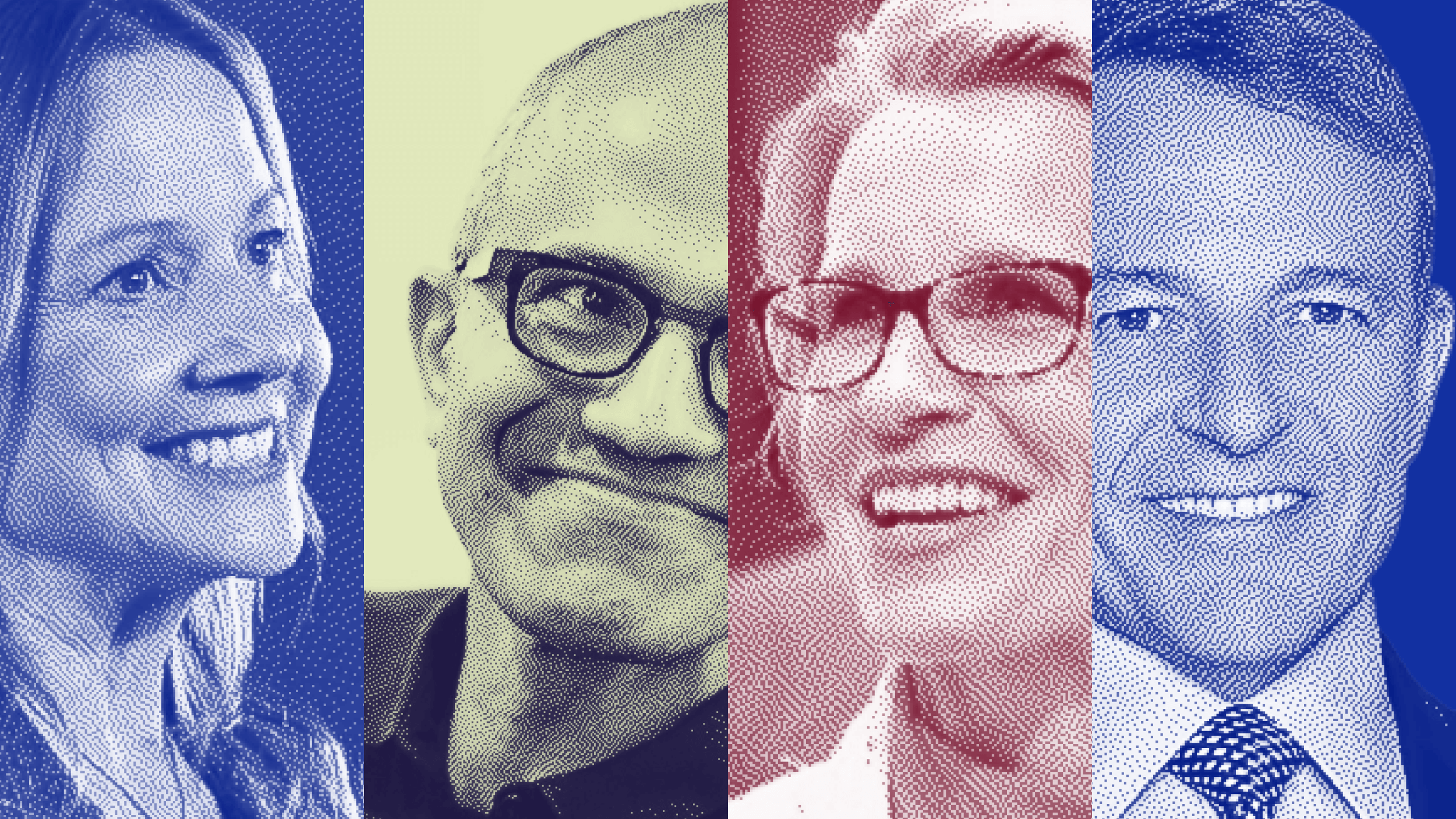Leadership essentials: “Inspire, motivate, and cultivate”

- Oakes began his career as a researcher in the CRISPR laboratory of Nobel Prize-winner Jennifer Doudna.
- He outlines his philosophy of innovation and reveals the “critical” element of great communication.
- Oakes also explains why Silicon Valley mantra “move fast and break things” is a terrible idea in biotech.
Nobody knows for sure who will ultimately fulfill the vast commercial promise of genetic medicine, but a lot of very smart people have high hopes for Scribe Therapeutics. CEO Benjamin Oakes was a researcher in Jennifer Doudna’s CRISPR laboratory long before her 2020 Nobel Prize win, back when precise genetic engineering had barely cracked the chrysalis of science-fiction. If Oakes succeeds at Scribe, all previous eras will finally be cemented into one crude BC: Before CRISPR.
He co-founded Scribe in 2018, following an Entrepreneurial Fellowship at Doudna’s Innovative Genomics Institute, and has had to navigate a warp-speed journey from lab bench to executive suite for which no reliable guide or playbook exists. Unless you count his own instincts and internal compass, which so far appear to be working just fine. He has inked over $4B worth of deals with notable big pharma players (including Sanofi and Lilly), and since then has launched genome and epigenome editing platforms.

Big Think caught up with Oakes for a nuanced dive into the business end of his remarkable career to date, in which he lays out his philosophy of leadership and innovation, contrasts the instant dopamine hits of research with the protracted timescales of industry success, and explains why “move fast and break things” is a total bust in the therapeutic biotech space.
If you lead (or belong to) a mission-driven team in any company, in any arena, we’re sure you’ll find his insights as finessed and meticulously engineered as the Scribe technologies he hopes will “rewrite the story of disease.”
Big Think: What forms the basis of your approach to radical innovation?
Oakes: The concept that the near future could look very different — and the far future could be near unimaginable — has always fascinated and challenged me to consistently seek out new ways I could imagine the universe unfolding. The way things are and the way you think about the world today doesn’t represent reality, and therefore does not need to be the way you think about it tomorrow: It is this realization that I believe is critical to innovation.
Everything is open to interpretation and change and evolution. If it’s possible to view the world in a different way, it’s possible to change the world in both small and very large ways. That’s the basic hubris and beauty of the human endeavor: to strive to do, become, enable or create something better. This line of thought is what inspires me to try and enable some sort of fundamental change.
The way things are and the way you think about the world today doesn’t represent reality, and therefore does not need to be the way you think about it tomorrow: It is this realization that I believe is critical to innovation.
To me, modern-day science offers a closer approximation of reality than many before us have had, which then makes the question of innovation more about how we can apply a more fundamental understanding of the natural world to improve the human condition. It entails dramatically rethinking the way we do things in the sciences to enable a more radical, innovative approach that change demands.
Big Think: At Scribe you are leading the vanguard of CRISPR development. Which leadership qualities do you think are most essential for success?
Oakes: Recognize that everything is a human endeavor. This means honing an ability to inspire people to work together in a productive way towards a mission, because — first and foremost — everyone has to be on the same team. No matter how smart you think your idea is, how good your technology is, or how transformative you think the problem you’re going after could be, none of that matters unless or until you can ensure that the people within your organization are working and operating together to the best of their abilities and continually growing their skills.
To me it boils down to three objectives as a leader: inspire, motivate, and cultivate. The nuts and bolts of accomplishing this are setting, delivering, and laying out the goals and mission for everyone on your team; maintaining a clear set of expectations, as well as what it means when we get there; and holding everyone to the same high standards by stressing the importance of relying on each other and helping each other grow.
What’s interesting is that the same style may not be necessary or may not be effective for a particular team or moment. So I’m not committed to a one-size-fits-all approach. Understanding the broader context and dynamics is important. You might be well served by pushing some teams to always keep moving forward if they thrive off a sense of urgency, or consider a more nuanced strategy with those who need to be pulled in a different direction.

Big Think: You have made the perilous leap from laboratory to C-suite. Are any skills transferable between those two environments?
Oakes: The types of skills you need to be successful as a scientist actually change well before becoming an executive — it’s whenever you become more than an “individual contributor.” There is an incredibly large difference between working towards being the best individual contributor, as typical for a researcher in the laboratory, and being a leader or a manager first.
During that transition, there are plenty of skills that are transferable, with the most important perhaps being “know that you know nothing.” As a researcher in the lab setting, you are often keenly aware that everything you believe currently could turn out to be wrong. As a leader, it becomes even more important to have comfort with the discomfort of lacking knowledge, and be able to move forward anyway.
We live in a world where you need to make decisions based on limited information. Many new leaders become deadlocked, assuming that entering a position of greater authority comes with knowing more of the details — it does not. Often your knowledge of certain functions fluctuates and you may know less than the front line!
Big Think: What are some of the biggest challenges you have faced outside the lab, at the executive level, and how did you overcome them?
Oakes: As a researcher, you can get these constant dopamine hits at various stages of the scientific process. Stepping outside the lab, you initially need to build a new understanding or feedback cycle that helps you determine if your approach works. How do you figure out if you’re on the right track with your product or technology or business?
You’ll find that the shorter cycle times you’re used to as a scientist drastically expand from an order of days to months or years. Then it can be harder to tell if your strategy is working or to iterate on it until you finally get results that demonstrate your science did pan out, or the market is interested in supporting your sort of technology.
As a leader, it becomes even more important to have comfort with the discomfort of lacking knowledge, and be able to move forward anyway.
In my experience, focusing on engineering made this process more straightforward.
Simply put, we build until we get the results that we want. That engineering mindset is applicable to constructively understanding and incorporating feedback from the world into a product — one of the largest challenges in the industry, and consequently something we take to heart at Scribe.
Big Think: You have been very successful forging partnerships with multinational companies. What skillsets as a leader helped those crucial relationships succeed?
Oakes: Again, having a people-first attitude. In the negotiation stage, we don’t look to build deals — our goal is to find mutually beneficial outcomes for both parties in the context of the broader mission. For Scribe and our partners, that’s creating a future where everyone has an improved standard of care. We make it a goal to build the strongest foundation we can to kick off a partnership, and I think that prioritization has allowed us to continue getting deals done.
A part of that comes from what Scribe is good at doing — engineering solutions to problems. We’ve built some of the best technologies in the field. We prove that with data time and time again. By giving potential partners the ability to test out our technology and validate our capabilities for themselves we can establish a foundation of trust in high-quality research. When it comes down to it, the reason why people work with us is that we can build things that no one else can.
Big Think: Your ease on the TEDx stage reveals you to be a great communicator: How do you hone your communication skills?
Oakes: Ideally, you should feel like you know your topic better than or on par with anyone else in the world. If not, make it your goal. With this confidence you can add in the passion one should have on expert topics and voilà. Like with any other skill, public communication is one that you can practice and improve over time.
Ideally, you should feel like you know your topic better than or on par with anyone else in the world. If not, make it your goal.
Also you might say something you don’t mean or it doesn’t roll off the tongue. It’s important to recognize that we’re all human and it’s OK to be colloquial and simply have a conversation. That last part is critical — you don’t want to be telling anyone just anything; you want to be talking with someone. Whether it involves one other person across the table or a crowd, having an authentic conversation about something very interesting is what’s meaningful. To that end, and most importantly, public speaking is easy if you’re just honest with your audience.
Big Think: One of the mantras of tech innovation has been “move fast and break things”: does this apply to your overarching philosophy?
Oakes: That is probably the worst philosophy to have in therapeutic biotech — and the genetic medicines space in particular — where you want to “measure twice, cut once.” I would note that this mantra applies differently in the tech world, where “move fast and break things” can mean releasing the product before it’s ready. The people will test it and if it falls apart, it’s OK, you learn more next time.
In biotech, we don’t want to have that luxury — we must be focused on safety first and foremost, and this is why we put so much effort into engineering improved CRISPR technologies at Scribe.





